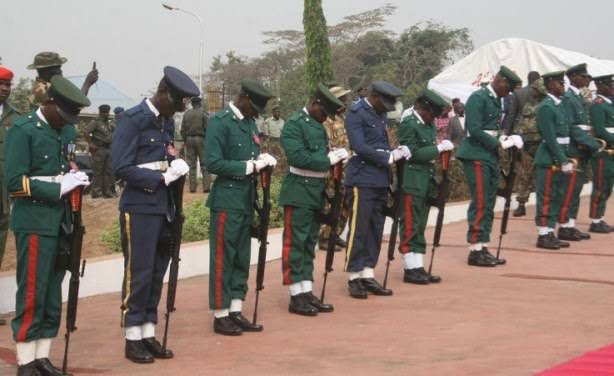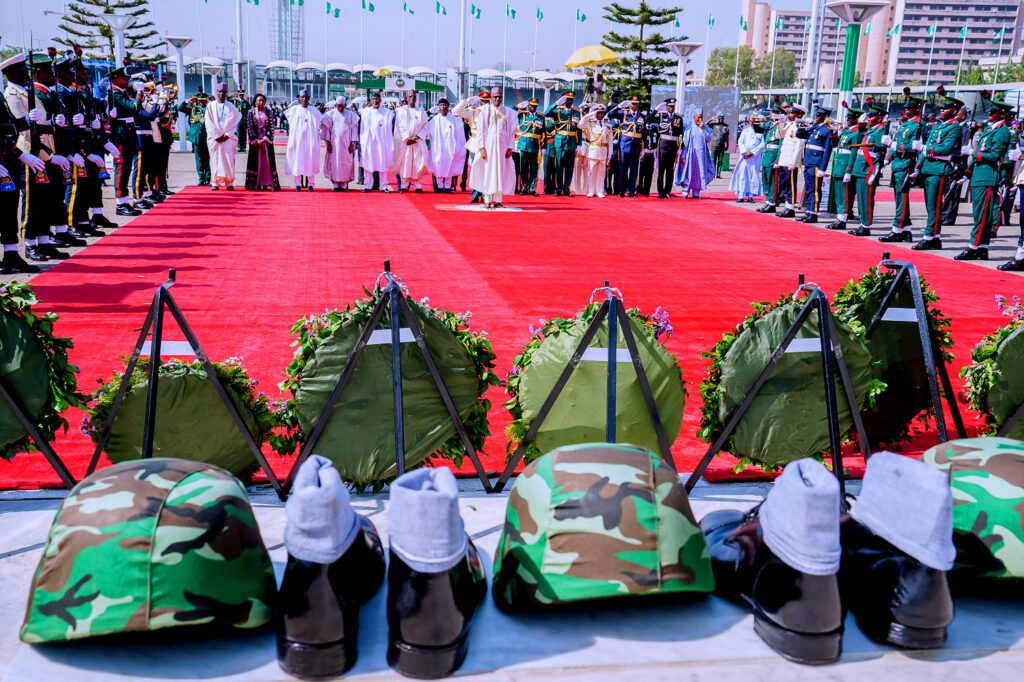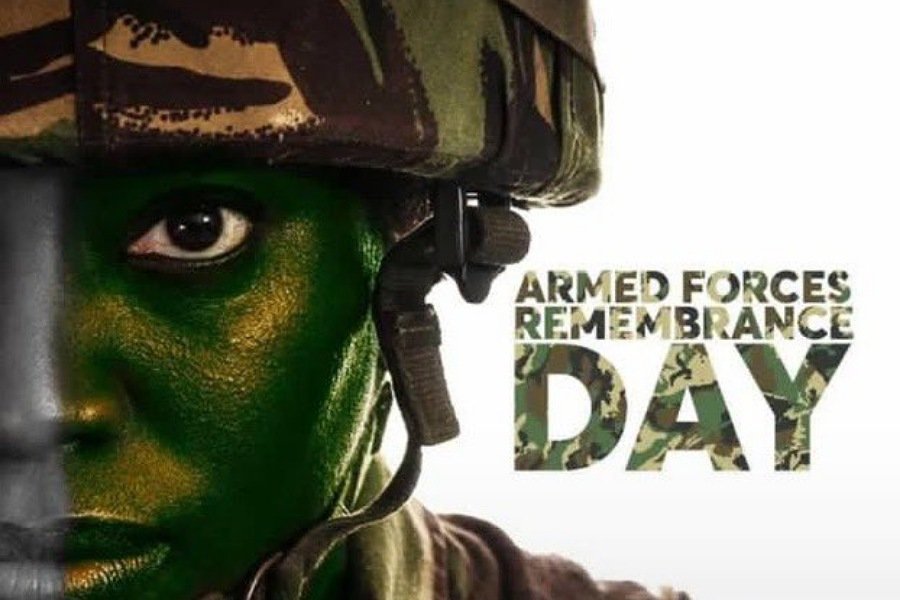January 15 every year is observed as Armed Forces Remembrance Day in Nigeria to mark the end of the country’s civil war that ended on Jan. 15, 1970, after about 30 months.
Armed Forces Remembrance Day is also important to honour the fallen heroes who gave their lives as sacrifice for the good and unity of the Nation. It also honours serving heroes who continue to fight and sometimes lay down their lives to maintain the territorial integrity of the nation.
To commemorate the event, military personnel from the Army, Navy, Air Force and the Nigerian Legion, along with the national and state political leaderships, converge at the National Cenotaph and cenotaph of the 36 states of the federation.

This day was initially celebrated in Nigeria on November 11 of every year to coincide with the Remembrance Day (“Poppy Day” or “11 – 11) to honour veterans of the First and Second World War in all Commonwealth countries. However, the date was changed to January 15th of every year in commemoration of the surrender of Biafran troops to the Federal troops on January 15, 1970.
The significance of Armed Forces Remembrance Day
The military surely remains the central body sworn to and committed to sustaining and guaranteeing the constitutional order we enjoy today. These men and women are on the frontlines of the war against Islamic State of West Africa Province (ISWAP)/Boko Haram terrorists, murderous armed herdsmen, kidnappers and other criminal elements.
Just last year, Nigeria was ranked by the Global Terrorism Index (GTI) as the third most terrorised country in the world, after Iraq and Afghanistan.
Also Read: Operation Lafiya Dole Eliminates Several Boko Haram Terrorists
As we celebrate our nation’s fallen heroes who served gallantly and paid the ultimate price, perhaps, the best way to honour them is to pay homage to those still alive. Let’s not neglect them as they are the ones risking their lives, safeguarding lives and properties, both day and night, while most of us attend to our businesses and careers, and other private and public engagements.

Nigerians should consider and reflect on the true meaning of this day and our roles as citizens to members of the Armed Forces (living and the dead) and their families.
This should not just be an annual ritual. It should be a day of reverence and awareness by Nigerians on the central role Nigerian military personnel – commissioned and enlisted – are playing to ensure peace and security in the country.

